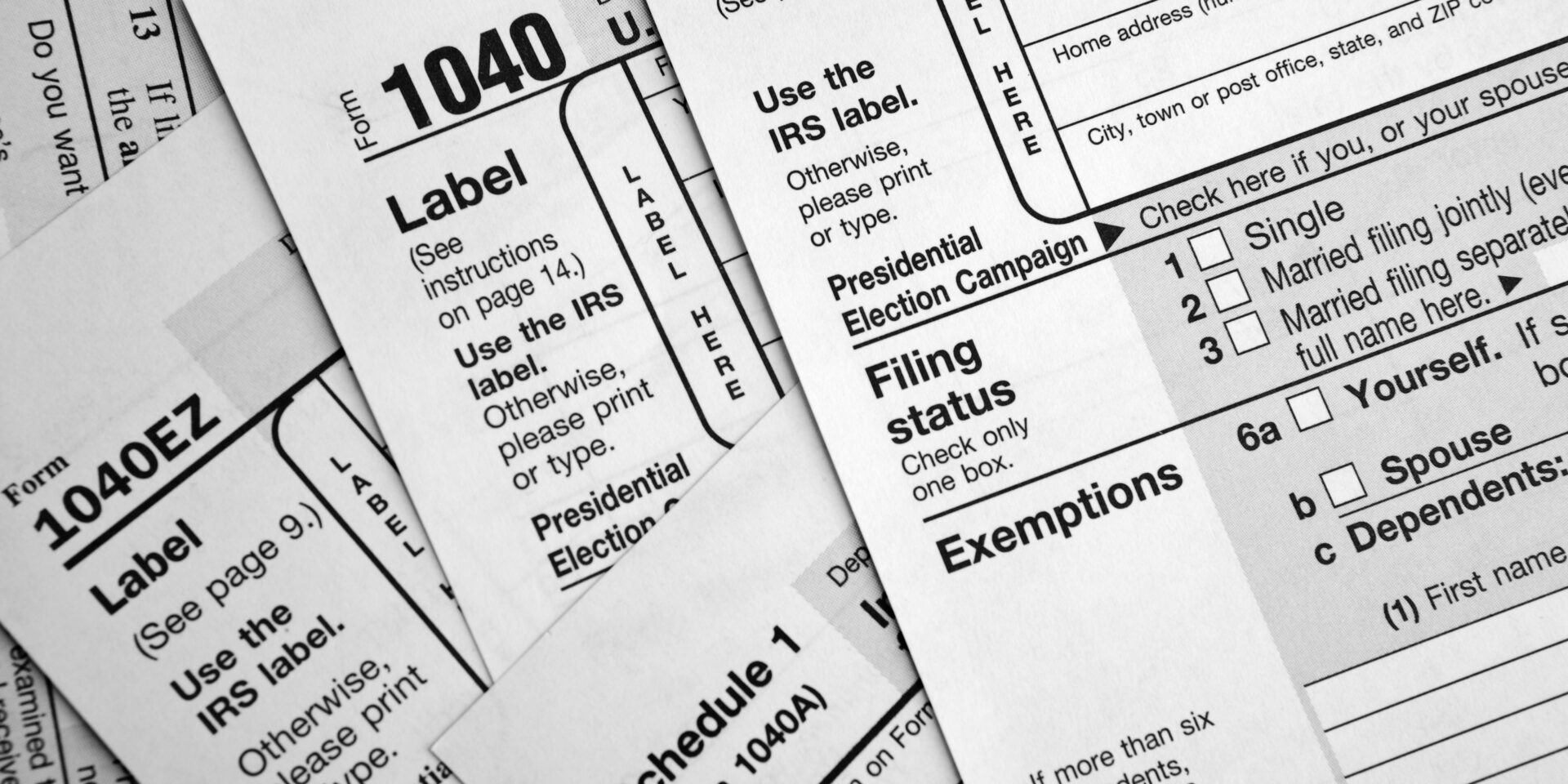Language:
How to File Taxes for an LLC with No Income

Just because your Limited Liability Company had a year of hibernation doesn’t mean it gets a tax break. Even with zero business activity, you might still have to file a federal tax return. It’s like getting a gym membership but never showing up – you still have to pay.
The LLC’s tax filing requirements will depend on how it’s taxed, whether it’s disregarded as an entity, or taxed as a partnership or corporation. It’s important to understand your LLC’s tax obligations to avoid any unwanted surprises come tax season. Read on to learn how to file taxes for an LLC with no income.
Is It Required to File Taxes for an LLC Even with No Income?
It is required to file taxes for an LLC even with no income. This is because the Internal Revenue Service (IRS) treats LLCs as pass-through entities, which means that the LLC’s income is passed through to its owners and reported on their individual tax returns. Even if your LLC had no income during the tax year, you still need to file a tax return to report that fact to the IRS.
Tax Filing Requirements
The specific tax requirements and forms you’ll need to use are based on how your LLC is treated and classified by the IRS based on ownership.
LLCs Treated as Sole Proprietorships
LLCs treated as sole proprietorships are responsible for filing their taxes using either a 1040 Schedule C or a 1040 Schedule C-EZ Form. This form is to be included with the individual’s personal income tax return and will report any profits or losses from the LLC. The LLC owner must also pay self-employment taxes, which are based on their net earnings from the business.
LLCs Treated as Partnerships
LLCs treated as partnerships file taxes using Form 1065, U.S. Return of Partnership Income, which reports the LLC’s income, deductions, gains, and losses to both partners and the IRS. The form must be filed annually by the 15th day of the fourth month after the end of the tax year. It’s important to note that each partner will receive a Schedule K-1 (Form 1065) that is used to report his or her share of partnership income and deductions on their individual return.
LLCs Treated as S or C Corporations
LLCs treated as S or C corporations file taxes using Form 1120, U.S. Corporation Income Tax Return which reports items such as total income, deductions, gains, and losses to both shareholders and the IRS. Each shareholder receives a Schedule K-1 (Form 1120S) or Form K-1 (Form 1120), depending on whether they own an S Corporation or a C Corporation respectively. These forms report each shareholder’s share of income and deductions from the corporation that is used for filing their individual income tax returns.
Tax Elections
Tax elections are decisions by businesses to choose how they wish to be taxed under federal law when they have no taxable income in a given timeframe. Businesses can decide between being taxed at corporate rates or electing out of corporate taxation entirely in favor of pass-through taxation where all profits are passed directly through to owners’ individual returns rather than being reported separately at corporate levels first.
To make this election businesses will need to use Form 8832 Entity Classification Election, which needs to be filed with the IRS.
Federal and State Income Taxes
Federal and state taxes can also apply to LLCs depending on their type of entity classification and the location within a particular state jurisdiction. All LLCs are obligated to meet their federal tax filing responsibilities regardless of whether there was taxable income for that year or not – although no payment may be due if there were no taxable profits made during that period. This requirement applies even if you opted out of corporate taxation through Form 8832 Entity Classification Election.
Disregarded Entities
Disregarded entities refer to a type of tax classification for entities, including LLCs, where the business is considered separate from its owners for legal purposes but not for tax purposes. In other words, the IRS disregards the LLC as a separate taxable entity, and instead, the LLC’s income and expenses are reported on the individual tax returns of the owners.
This can be done by filing Form 1040 or Form 1040-SR with Schedule C or Schedule F for business income and losses. Another option would be to file Form 1040-NR if the entity is a foreign one. It’s important to note that taxpayers may still need to pay self-employment taxes on $0 net income from business activity.
Benefits of Filing Taxes
Filing taxes may not be the most exciting task on your to-do list, but as an LLC owner, it can bring significant benefits to your business, even if you had no income during the tax year.
First and foremost, filing taxes on time can help you avoid hefty penalties and interest charges that can quickly add up and hurt your LLC’s bottom line. Keeping up with your tax obligations shows that you’re a responsible business owner who takes compliance seriously, which can improve your credibility with lenders, investors, and customers.
Filing taxes can also help you take advantage of various deductions and credits available to LLCs, even if your business operated at a loss during the tax year. By keeping accurate records of your expenses and deductions, you may be able to reduce your overall tax liability and keep more money in your LLC’s pocket.
Since it’s a legal requirement, filing taxes can help you maintain good standing with the state and federal government, which can have long-term benefits for your LLC. For example, some states require LLCs to file annual reports or pay a minimum tax to keep their status active. By staying on top of your tax obligations, you can avoid losing your LLC’s legal protections and having to dissolve and start over again.
Consequences of Not Filing Taxes
Even if your business had no income, failing to file taxes for your LLC results in a slew of consequences.
The IRS can charge your LLC fees for not filing your tax return, which can be a significant financial burden, especially if your business is struggling. If you fail to pay your tax bill on time, you may incur penalties and interest charges that can quickly add up and make it challenging for your LLC to get back on track financially.
Penalties and interest charges start accruing the day after your tax return was due, and they can be as much as 5% per month or part of a month for the penalty for failing to file your tax return on time. The maximum penalty is capped at 25% of the unpaid taxes. According to the IRS, If your return was over 60 days late, the minimum Failure to File Penalty is $435 or 100% of the tax required to be shown on the return, whichever is less.
You may also lose the ability to claim deductions or credits associated with past tax years. Some deductions and credits have time limits and must be claimed on a tax return for the year they were incurred. If the LLC fails to file the tax return for that year, it may forfeit its right to claim those deductions or credits in the future.
For example, if an LLC incurred a loss in a previous tax year and wants to carry that loss forward to offset future profits, it must file its tax return for that year on time. If it fails to do so, it may lose the ability to carry the loss forward and reduce its tax liability in future years.
Failing to file your LLC tax return on time can also have other consequences, such as damaging your business’s reputation, hindering its ability to obtain financing, and limiting its opportunities for growth and expansion
Bottomline: Always File Your Taxes
If your LLC made zero dollars this year, it doesn’t mean you get to skip the paperwork. Reporting your LLC’s income, or lack thereof, to the IRS is not only the responsible thing to do, but it also protects your business in the long run.
Think of it this way – by filing your taxes on time, you’re like the cool kid who turns in their homework early. You get to avoid the stress and worry of getting penalized by the IRS and focus on growing your business instead. Plus, you never know when that little zero on your tax return could turn into a big dollar sign in the future.
So, whether you’re a new LLC just starting or an established business with a slow year, don’t be afraid to report that zero income to the IRS. Your business will thank you for it.
If you need a little help with your bookkeeping or tax filing, doola is here to save the day. We’ll help you stay on top of your business finances and relieve the stress of wondering when or how to file.
FAQs
What happens if I don’t file taxes for my LLC?
If you don’t file taxes for your LLC, you may be subject to penalties and fines from the Internal Revenue Service (IRS). Additionally, the IRS may revoke your LLC’s status as a business entity. Therefore, you must stay on top of any taxes owed by your LLC and make sure that they are filed on time each year.
Do you need to file a separate LLC tax return?
Yes, you need to file a separate LLC tax return. This must be done regardless of whether or not your LLC has earned any income. The purpose of filing an LLC tax return is to report expenses and other deductions associated with operating the business. Even if there is no income for the year, it’s still important to file the necessary paperwork with the IRS to remain compliant.
Can I have an LLC with no income but expenses?
Yes, you can have an LLC with no income but expenses. This situation is common for businesses that are just getting started and working to build up their customer base before generating significant sales revenue from their products or services.
Keep reading
Start your dream business and keep it 100% compliant
Turn your dream idea into your dream business.
















